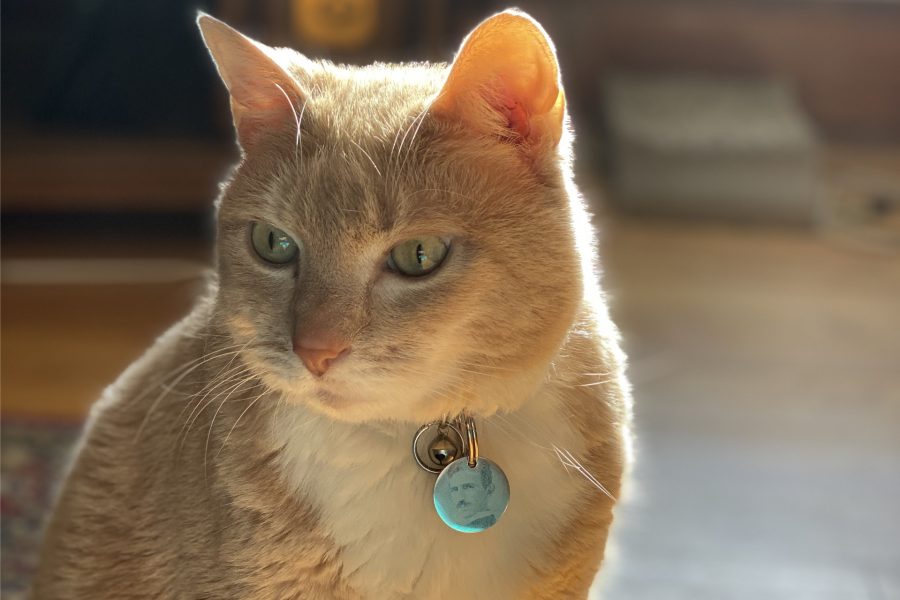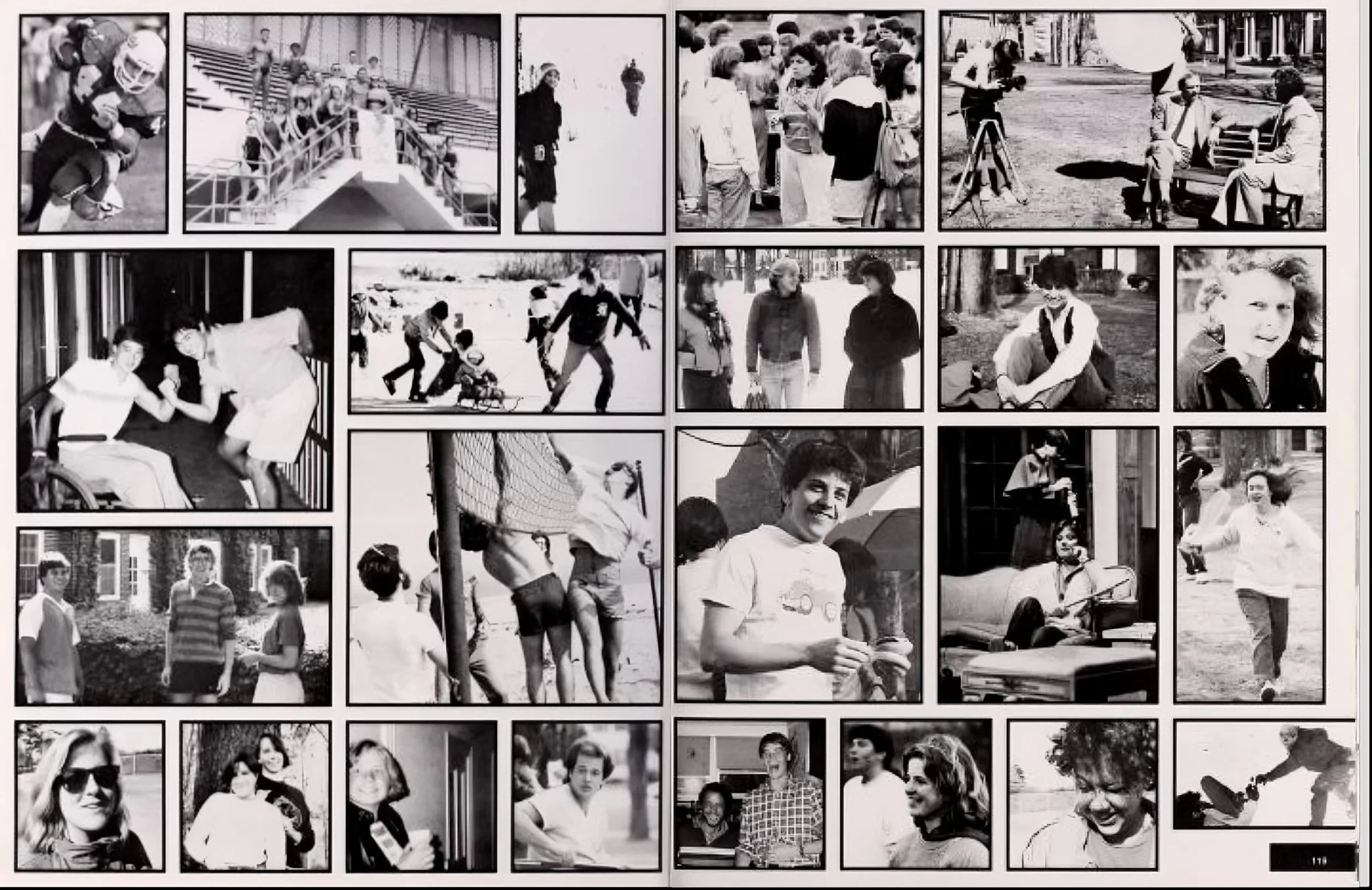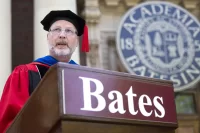
Here’s a thought for our times: “The best part of migrating a course online is making the trailer.”
The source of that statement is Andrew Kennedy, assistant professor of chemistry and biochemistry. He made the comment on Twitter on March 20, as he posted a trailer — the cinematic variety, not the kind you tow — for his course “Mechanisms of Memory.”
Like many of his Bates colleagues and peers at other schools, Kennedy has been scrambling to move his courses and his interactions with students online as the COVID-19 outbreak has sent students home.
The best part of migrating a course online is making the trailer #AcademicTwitter pic.twitter.com/HONk8q14wa
— Andrew J Kennedy (@Prof_AJKennedy) March 20, 2020
“I’ve never really made a video for class, and I’ve certainly never exclusively administered a course remotely,” says Kennedy.
“It’s one thing to design a class to be a certain way, giving deep thought into how the students might enjoy being engaged with the material and with one another. But it’s another thing entirely to abruptly shift that, and everyone participating in it, into this new virtual space.
“I think I made it to demonstrate to the students and to myself that we can’t just keep doing what we did before.” It’s a make-the-best-of-this attitude that reflects Bates’ upbeat determination to keep the pedagogical momentum going.
Kennedy’s trailer, named for the course, racks up the laughs as the professor makes fun of his inexperience and discomfort with remote teaching. Inspired by Kennedy to make her own trailer, Assistant Professor of Neuroscience Michelle Greene took the humor a step further.
Titled The Classroom Is Not Enough, her promo for the course “Neuroethics” takes on the cinematic James Bond aesthetic (albeit substituting coffee for the British spy’s martinis).
“Don’t we need a chuckle right now?” says Greene. “In all seriousness, I strongly believe in humor to rebuild the community in my class and to put students in a positive mindset moving forward.” A researcher who studies how the brain makes sense of what we see, Greene is the principal investigator of a major project to create a vast Visual Experience Database.
Video by Michelle Greene.
https://youtu.be/REoCADGZXy0
Kennedy agrees. “I didn’t even get a chance to say goodbye to my students,” he says. “The rest of the semester is going to be hard on everyone, and therefore compassion, community, and continued intellectual engagement have to be at the center of whatever we do going forward.
“But with all that is wrong and omnipresent in our lives right now, I also desperately wanted to laugh and make fun of myself, and I thought the students might need that, too.”
Kennedy’s research includes important achievements in potential therapies for the autism-spectrum disorder called Pitt Hopkins Syndrome and the recent synthesis of a new molecule, Bobcat339, that has the potential to govern the function of genes related to memory loss and genes that aid and abet the spread of cancer.
Along with Kennedy and Greene, a third Bates person has turned to the trailer format to advance her online teaching. Amy Bass ’92, author and professor of sports studies at Manhattanville College, did something similar, she says, to get her students “psyched for our migration to distance learning amidst the chaos that is COVID-19.”
I made a little something for my #sport studies students @Mville_College — we go online tomorrow, and we are ready for this adventure. pic.twitter.com/6vuDNnmJjr
— Amy Bass (@bassab1) March 15, 2020
Both Bates professors used basic technology that was close at hand to film the pieces — a laptop for Kennedy, who shot the piece entirely in his Dana Chemistry Hall office, and a smartphone for Greene, who combined new footage with sourced clips from her course. Both used iMovie to assemble the trailers.
Making the trailer “was a blast. It was the first time I laughed in a week,” Kennedy says, adding that after he posted it “a bunch of former students reached out to make sure I wasn’t losing my mind.”
“My students have enjoyed it,” says Greene. “They’ve especially latched on to my cat Tesla being the new class TA. On our Slack discussion channel, they have even created an emoji of him.”





